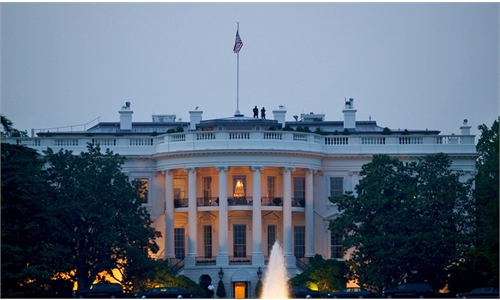
A file photo of a U.S. OC-135 plane.
The US on Sunday formally withdrew from the Open Skies Treaty (OST), which came into force in 2002. The treaty was designed to enhance mutual understanding and confidence by giving all participants, regardless of size, a direct role in gathering information about military forces and activities of concern to them.
This is just a part of the US withdrawal from a ring of arms control treaties. The administration of US President Donald Trump was not satisfied with the existing system of arms controls, believing it constrains the US military to better equip itself.
The US withdrawal from the treaty will reduce transparency between the US and Russia, ramp up their mutual distrust, and further undermine their bilateral systems for arms control treaties. Washington exited the Intermediate-Range Nuclear Forces Treaty (INF) in 2019. The prospect to renew their only remaining arms control treaty - the New Strategic Arms Reduction Treaty - remains grim.
Due to Washington's withdrawal, Russia will be unable to conduct inspection missions over US territory. However, except for Russia, the remaining countries are also members of the NATO. Judging from the current scenario, even though the US withdrew from the OST, it cannot rule out the possibility that other parties of the treaty will share intelligence of their observation flights over Russia with the US. This will severely undermine Moscow's interests.
If nothing unexpected takes place, the White House will usher in a new president on January 20. Democratic candidate Joe Biden is expected to approach arms control differently from Trump. Russia may be observing the new US government's stance on dealing with arms control to make up its mind on to stay or leave.
The US has repeatedly positioned itself as either a referee or judge to criticize other countries, especially China and Russia over their arms control and non-proliferation practices, styling itself as the perfect role "model." But look at what it did. It withdrew from the Iran nuclear deal, the INF, and the OST successively. This is hardly a "model" worth emulating.
The Trump administration has been cranking up the "America First" policy, applying it to arms controls — or lack thereof. Washington intends to maintain its superiority in terms of military might. This country believes that series of treaties, including the OST, are not consistent with US interests any more. Therefore, it is determined to withdraw from them to maintain its military hegemony, with a strong unilateralism.
The US' withdrawal from a series of arms control treaties has had a very negative impact on the global arms control system and global security. The bilateral arms control treaties between the US and Russia are an important part of the global arms control system. The US pullout of pacts including the INF and the OST has made the international arms control system partially collapse. This will negatively affect global strategic stability, may stimulate a new arms race, and increase armed conflicts between major powers. There will be many hidden dangers for global security.
The existing international arms control system was established after the end of the Cold War. It is true that this system has not fully or appropriately adjusted accordingly with relevant international affairs. In other words, it cannot effectively combat new challenges. Yet it demands the whole international community to jointly adhere to it. They must promote and develop this system, rather than withdraw from treaties or impair rules like the US is doing now.
Biden, in response in May to Trump's announcement to withdraw from OST, said he would, "doubled down on his short-sighted policy of going it alone and abandoning American leadership."
Some media outlets are discussing whether or not Biden will undo Trump's pullout. This is a possible scenario. When it comes to arms controls, the position of the Democrats differs significantly from Republicans. If Democrats were in power, then Washington would have not exited the INF or the OST. After taking office in January, the Biden administration may rejoin these treaties that Trump is trying to crash.
The author is director of Arms Control Studies Center, China Institutes of Contemporary International Relations. opinion@globaltimes.com.cn

